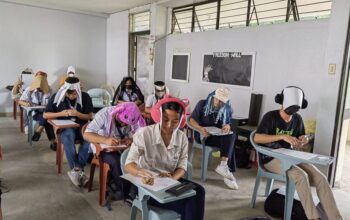Andiamo! Learn Italian while dreaming about your next trip to Italy.
As a traveler with Italian roots, I’m admittedly a little biased — but there is something special about the Italian language. Whether it’s a casual conversation, a heated argument, or an artfully composed aria, everything just sounds better in Italian.
Written content by Nina Ruggiero via Travel and Leisure
That being said, it can be daunting to blurt out a butchered Italian phrase when the locals around you are stringing gorgeous words together as effortlessly as a pastaio folds up perfect tortellini or a gondoliere glides through a Venice canal.
But if you’re traveling to Italy, you really should try to learn a few common Italian phrases and words before you go. While you’ll find plenty of English speakers in any of Italy’s major cities, most Italians will appreciate you trying their language; you may even be surprised how many new friends it makes you as you mingle at aperitivo or linger in a bustling piazza.
OK, pronto? Ready? Here are a few basic Italian words and phrases to get you started. (All phrases are formal unless noted.)
Basic Italian Words
Hello: Ciao (informal); Salve (formal)
Goodbye: Ciao (informal); Arrivederci (formal)
Good morning: Buongiorno
Good evening: Buonasera
Goodnight: Buonanotte (use this when you’re going to bed)
Please: Per favore; per piacere
Thank you: Grazie
Thanks so much: Grazie mille
You’re welcome: Prego; Di niente
Beautiful: Bello (masculine); Bella (feminine)
Good: Buono (masculine); Buona (feminine)
Friend: Amico (masculine); Amica (feminine)
Family: Famiglia

Common Italian Phrases
I love you: Ti amo (romantic); Ti voglio bene (family, friends)
How are you?: Come sta?
How’s it going?: Come va?
I miss you: Mi manchi
I don’t know: Non lo so
All’s well: Tutto bene
I’m sorry: Mi dispiace
What is your name?: Come si chiama?
My name is…: Mi chiamo…
OK: Va bene Read more from Travel and Leisure.
Follow News Without Politics for updates on more amazing and relevant unbiased news stories.
Stay informed daily without media bias and ahead of influence.




